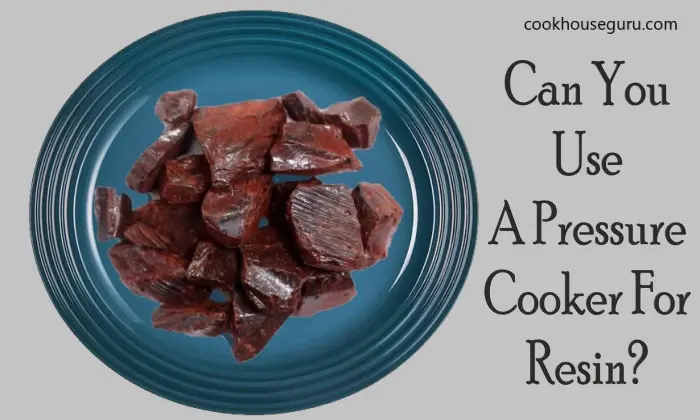No, pressure cookers should not be used for resin as it can cause dangerous and unpredictable reactions. Resin art has become increasingly popular among diy enthusiasts due to its versatility and beauty.
A pressure cooker is a great way to cook food quickly and efficiently, but you might wonder if it works for resin. They can reach higher temperatures, making them perfect for resin curing. In this blog post, we’ll discuss some tips and tricks for using a pressure cooker for resin curing. We’ll also cover some of the pros and cons of doing so. Keep reading to learn more!
Can You Use a Pressure Cooker for Resin?
Resin is a great material for many different applications, but it can be tricky to work with. One of the most difficult parts of working with resin is getting it to cure properly. If you don’t cure resin correctly, it can be brittle and weak, and it might not harden at all.
Curing resin requires two things: heat and pressure. You can apply both of these things in a number of ways, but one of the most efficient ways to do it is with a pressure pot. But you can also use a pressure cooker instead.
It can apply both heat and pressure at the same time, which can speed up the curing process significantly. Additionally, it can reach high temperatures that can help to ensure that the resin cures properly.
Which Type of Pressure Cooker is Best for Resin Users?
There are two main types of pressure cookers: electric and stovetop. Stovetop models are the more traditional type, and they’re the type that most people are familiar with. They are less expensive, but they can be more difficult to use.
On the other hand, the electric pressure cookers are newer, and they’re becoming more popular because they’re easier to use. They are also less likely to explode than stovetop models, so they’re safer to use.
If you have never used a pressure cooker for doing this, it will be best to start with an electric one. They’re easier to use and can be more precise, which is important when working with resin.
Once you’re more comfortable with using a pressure cooker, you can try a stovetop model. Just remember to be careful when using one, as they can be dangerous if not used correctly.
Thousands of pressure cookers are available on the market but not all are suitable for resin. For resin users, it needs to be able to reach at least 15 PSI (pound per square inch). This allows for a margin of error and ensures that it can reach the necessary temperatures for resin.
How to Use a Pressure Cooker for Resin?
Using a pressure cooker is relatively simple. Just follow these steps:
1. Pour your resin into the cooking pot.
2. Add the necessary amount of hardener.
3. Close the pressure cooker’s lid and seal it.
4. Turn on the heat to high and wait for it to reach 15 PSI.
5. Turn off the heat and let the cooker release steam before opening it.
6. Once the pressure is released to the safe level, open the lid and remove the resin.
7. Cure the resin according to the instructions that came with it.
And that’s it! Be very careful when handling the pressure cooker otherwise, you may injure yourself.
The Pros and Cons of Using Pressure Cookers
There are a few pros and cons to using a pressure cooker for resin. Let’s take a look at some of the most important ones:
Pros:
- It can speed up the curing process significantly.
- It creates a high temperature that is ideal for resin curing properly.
Cons:
- If you’re new to using a pressure cooker, it can be tricky to get the hang of it.
- It can be expensive.
Tips for Getting the Most Out of Your Cooker
If you’re going to use a pressure cooker, there are a few tips that can help you get the most out of it.
1. Make sure that your cooker is big enough to accommodate the amount of resin you’re working with. If it’s too small, the pressure can build up too much and cause the cooker to explode.
2. Make sure to pre-heat the cooking pot before adding the resin. This will help the resin cure more evenly and prevent it from cooling too quickly, which can cause problems.
3. Use a pressure regulator to control the amount of pressure that’s applied to the resin. This can help to prevent the pressure from building up too much and causing the cooker to explode.
4. Make sure to vent the pressure cooker regularly. This will help to release the fumes from the resin and prevent them from building up to dangerous levels.
5. You need to be aware of the safety hazards associated with pressure cookers. If you’re not careful, they can be very dangerous. The temperatures inside can be high enough to cause serious burns, so it’s important to use caution.
6. Make sure to read the instructions carefully and follow them closely.
Conclusion
In conclusion, a pressure cooker can be a great tool for resin users. It can help to speed up the curing process and can also provide a margin of safety. With a little bit of care, you can do this safely and efficiently. Thanks for reading!

